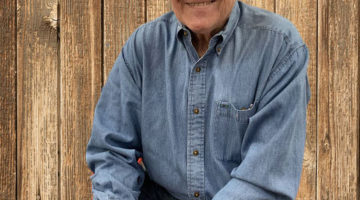First fruits first.
The parsha very appropriately starts off with the mitzvah of Bikurim; bringing the first fruits of the new crop to the Cohain. The Medrash Tanchuma states that when Moshe taught over this mitzvah, he also threw in the mitzvah of Davening, prayer. The Medrahs says Moshe saw in the future that the Temple would be destroyed and the Jews would no longer be able to bring Bikurim, So Moshe explained Jewish Prayer here too.
Davening and fruit. A very curious connection indeed. I spent a great deal of time trying to come up with a catchy connection, and all I came up with was the sorry title you see above. Luckily, the spiritual connection is a bit grabbier.
Random tangent (or is it..?)
But let me go A.D.D. on you for a second: Why does the mitzvah of Bikurim involve the first fruits, and not the best fruits? If I had my choice, it wouldn't be much of a contest. Not many people jump excitedly for the first slice from a loaf of bread (a.k.a the dreaded end piece), and you most definitely don’t see anyone getting married on the basis of he/she being the first date. (Goodbye upper west side life, and hello lucrative new world for shadchans) So why does God want our first and not our best?
The answer is that the first action sets the tone for the rest. Even when a farmer works hard to grow his produce, he understands its holiness, as well as its origins, when he must bring the first yield to dedicate to Hashem.
Davening is no different
Praying to Hashem is a similar concept. This is why it is the first thing we do each morning, and why it is scheduled before we take care of any routine requirements/responsibilities for the day. It should set the tone for our lives to make us remember what (and who) we are living it for.
Addendum
I saw a great question from the Yalkut Yehudah, courtesy of JPMorgan’s torah-of-the-day emailer Isaac Zimmerman (This guy deserves a shout out). What is the connection between Amalek at the end of last week’s parsha and Bikurim at the beginning of this one? The answer serves as a meaningful message: Praying to Hashem needs to happen during the good times just as much as it does during the bad. Of course we will ask for help when we are being attacked (Amelek always seemed to know exactly when Israel’s faith was weak, and the attacks awakened their cries to Hashem), but the most difficult time to feel the need to pray is when things are great – like when you first harvest your olive crop ….perhaps you can imagine a more applicable example to you – but the message needs no modernizing: Recognition of G-d’s contribution and presence is not strictly a rainy day activity.
Rainy Day Activities
The following, however, are strictly rainy days activities:
Please direct any comments or suggestions to Avi Naftali









